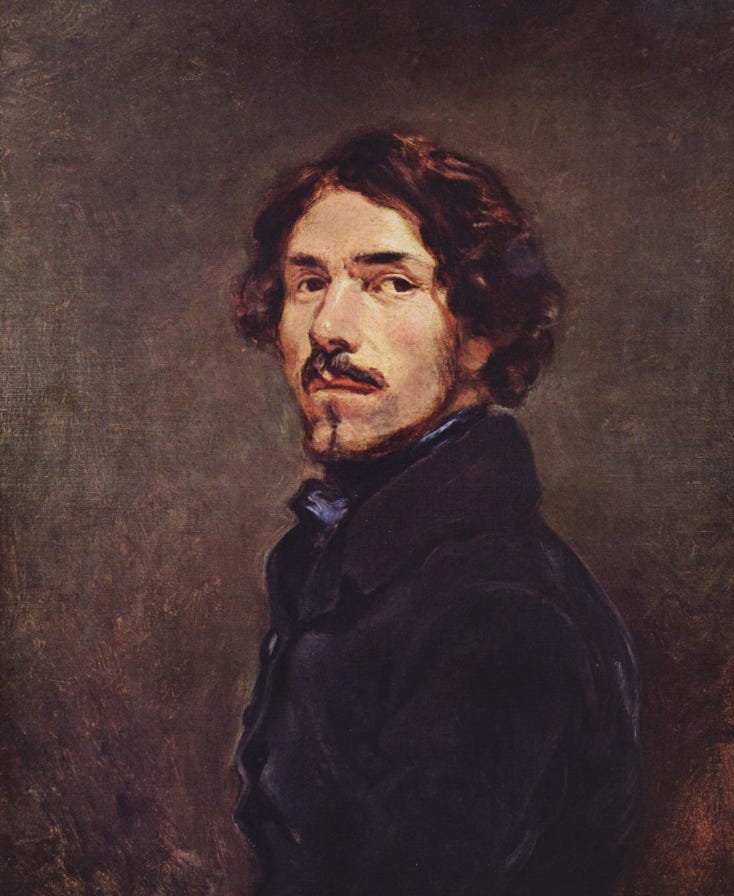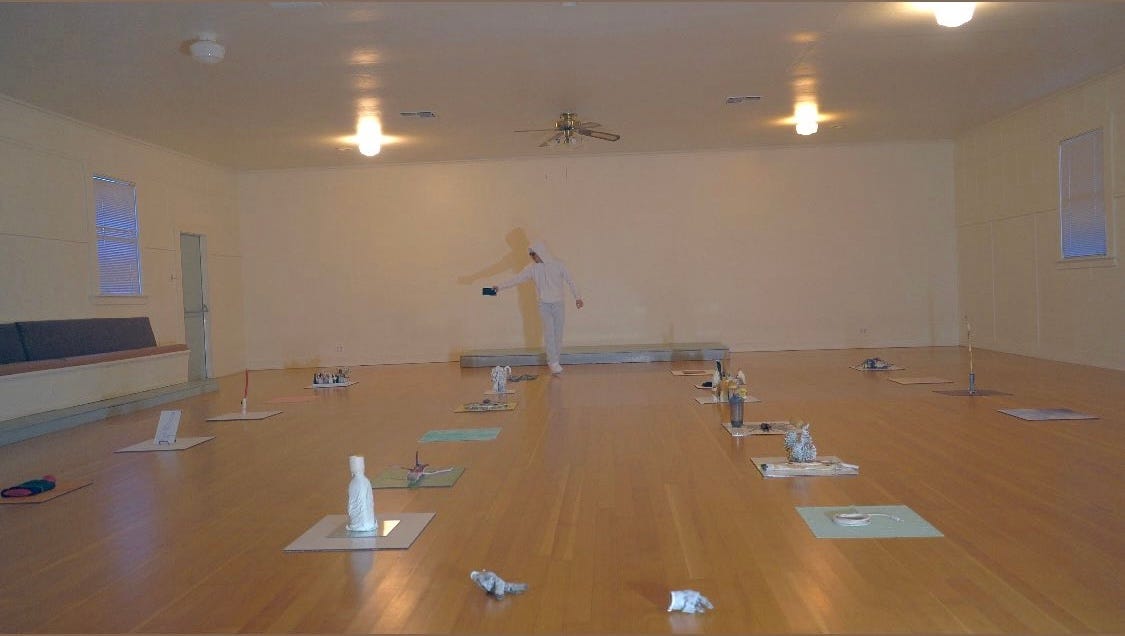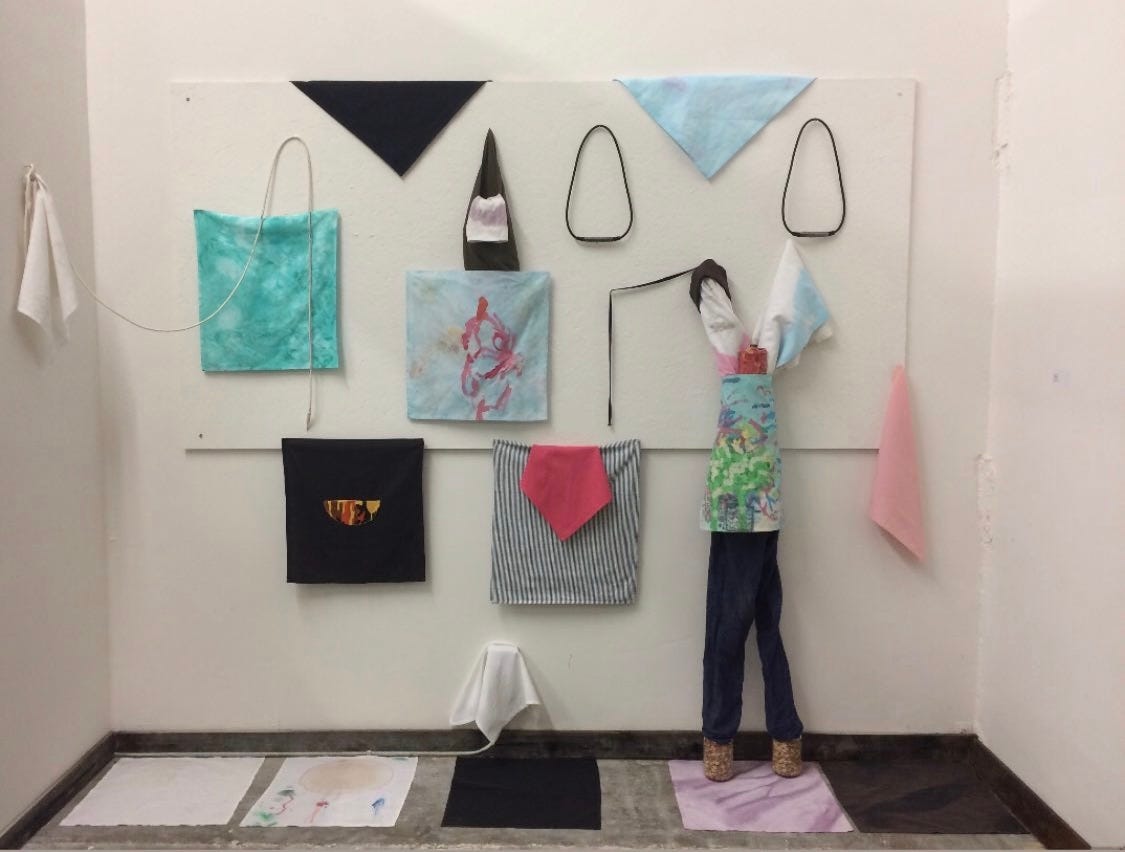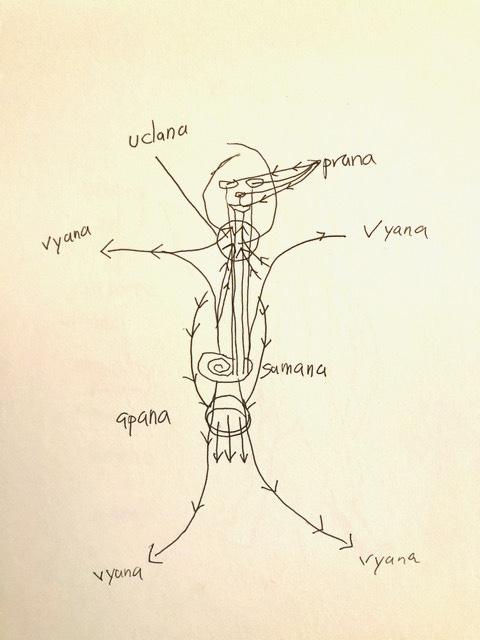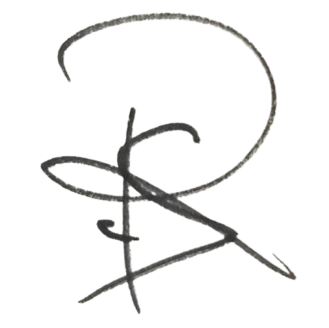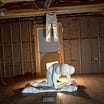#34: Ross Simonini, Artist & Writer
"Staying uncertain is the best form of freedom I’ve found."
Ross Simonini is an interdisciplinary artist, writer, and musician. Today, a meditation on his healing journey — from developing bodily awareness and divesting from dogma to, as he put in an earlier draft, “discover[ing] health without the help of words.”1
Sun/Moon/Rising
Cancer/Aquarius/Sagittarius
What does health, or being healthy, mean to you?
I think the word “health” is just too overloaded for me. I’m exhausted by the whole paradigm of judging foods, sensations, thoughts, and activities as “healthy” or unhealthy. The same is true for “healing,” which has become overused by so many opposing forces that the term has lost its potency.
At this point, the word “vitality” feels like a better choice. Vitality is a feeling, not a standard. It’s right there, inside of pain and pleasure. It’s what gives us the energy to continue finding our balance. It’s the force of uncertainty.
I’ve been reading Jane Bennett and other vitalist philosophers and I enjoy how the concept of the vital force becomes a way of looking at everything in world, not just humans or living things. It’s just the nature of reality.
So where the word health has started to make life feel smaller, vitality becomes a way of opening up the world. It’s also a pretty good description of what I want to experience while I am alive.
“Vitality is a feeling, not a standard. It’s what gives us the energy to continue finding our balance. It’s the force of uncertainty.”
Was there a specific moment in life that made you change your approach to health, or become more conscious generally?
I am coming out of a decade of dealing with a mysterious swarm of symptoms, which I will not elaborate on here, but which I have written about before. It’s been a long, uneven process of recovering. There was never a clear diagnosis or cure, so I had to lean into exploration, which was ultimately very helpful.
No doctor or practitioner will care about your health like you do, so developing awareness of your body is essential. I also think this kind of awareness can transform you and help you work with your physical self in the longterm. It’s like that proverb in Chinese medicine: ‘One disease, long life; no disease, short life.’
There was one point when nearly every aspect of my existence was dictated by my body. I moved across country to a small town in the redwoods, radically altered the way I lived, changed my profession, all of which were very inconvenient but necessary. However, since then, I’ve had to go in the opposite direction — deprogramming myself from health think.
So, by design, I am not as rigorous as I once was about my health, but I have also developed enough habits that I don’t stray too far from helpful patterns. I’ve done plenty of restrictive practices and supplements and exercises that I now understand my tools for some situations.
This whole process has led me to regard my health as a place for experimentation, which is also what I like art to be. It’s actually what I like all of life to be, but I’m not always able to experience it with that kind of clarity.
This approach seeps into other parts of my life as well, like what art materials I use, what elements I bring into my home, where I travel. Wrist problems led me to paint with my feet, etc. The trick is to not let this kind of deep bodily awareness become a compulsion, or it just becomes another liability.
“This whole process has led me to regard my health as a place for experimentation, which is also what I like art to be. It’s actually what I like all of life to be, but I’m not always able to experience it with that kind of clarity.”
How would you describe your current lifestyle?
I spend a lot of time outside. My studio is half-outside, my house is pretty porous to the yard and I walk in the woods daily. I live in Altadena, the foothills at the edge of Los Angeles, and I have nearby access to mountains and streams and woods. This is one of the most important aspects of my life and we moved here specifically for the nearby wilderness.
Over the years, I’ve gone through many stages of how my body fits into my lifestyle. I started from a pretty western place, and then, out of requirement, I switch to alternative medicine, herbalism, Ayurveda, somatics, esoteric techniques, and so forth. If you really dedicate yourself to getting better, all of these approaches can dictate your whole lifestyle. It’s not unlike religion.
Recently, on the advice of a wise doctor, I spent a year trying to treat myself entirely through spiritual modalities. I was dedicated to the practice but in the end, I had simultaneously helped my body and nearly destroyed it. (I wrote a little about it here.)
After that, I shifted away from intensity, and started using the most subtle modalities I could find, like Feldenkrais or homeopathy, which is what I’m doing now. One thing I like about this kind of subtlety is that you can’t really hurt yourself, and you can treat it like art.
I use some kitchen herbalism techniques when I’m cooking. Sometimes I like to look at images that may effect my mind-body. Recently, I hung up a photograph of the wettest place on earth when the dry winter air started irritating my skin.
And I like taking medicinal substances that might also have a poetic component to them:
Shilajit: When the mountain ranges formed, all the animals and plants and minerals were compressed and liquified into a black, viscous substance that bubbles up at the peaks and can be harvested and eaten for energy. I enjoy shilajit because it gets me as close as possible to eating earth daily.
Bach Flower Remedies: These formulas use water or alcohol to extract the energetic-electrical system of certain flowers (Aspen, Clematis, Mustard). They do not contain even the smallest trace of the physical flower which means that only the humming essence of the flower remains. This can purportedly tune you to different emotional states.
To be clear, these things do help me, in tangible ways, but I also think consuming these substances creates a poetic spark that a lab-produced powder may not. It’s not unlike how music heals people.
“The dead tree branch breaks while the living branch bends, which is to say, the softness of life should be the model for the body, not the stiffness of death.”
That said, labs can be great too. For instance, recently I have been liking caffeine in its pure, extracted form, rather than in teas or coffee, which contain buzzy, histamine-y tannins. I like to experiment with very small doses, which is easier with the isolated, synthetic form.
Do you have any guiding principles?
The middle path. Always.
I’ve tried willpower and intensive discipline for health purposes but I find that rigidity isn’t very sustainable. It also doesn’t really suit the changing nature of organic life.
The dead tree branch breaks while the living branch bends, which is to say, the softness of life should be the model for the body, not the stiffness of death. Extreme diets lead to extreme emotions, extreme problems, etc.
So, for me, I think it’s “healthy” to eat something “unhealthy” on a regular basis, just to break patterns and keep me loose. Otherwise, a plaque of healthiness starts to accumulate on my mind.
And that’s another principle: variety. I try to not allow things to build up. Movements, foods, amino acids, feelings, etc. I alternate shoes so my feet don’t mold to one shape. I eat from different sources so I don’t become imbalanced with whatever pesticides one farm has in its soil, or whatever minerals one factory has in its walls.
This is even true for good ingredients. Too much of a good thing is not wonderful because it’s too much. Medicine and poison are just different doses of the sahing.
Where do you look to for information or advice?
I used to be hungry for any knowledge on health but now I’m not as open to advice, as it becomes an overwhelming contradictory cloud of noise. You can drive yourself mad if you try and follow all the opinions floating around in culture. Health and diet talk is as controversial as politics, and people heavily identify with their keto diet or vegan philosophy or gym. For me, it’s hard to take any advice when this kind of righteousness is attached to it.
Right now, I’ve been working with a nutritionist who is my primary point of reference for all things body. It’s useful to have a single point of view to return to, as I continue to experiment. I think part of living a good life is to have a good relationship with whatever body you happen to have, and I try to only take advice that improves (but doesn’t disturb) my whole body-self relationship.
What’s your perfect meal?
Like many people, the meals I enjoy for flavor are different than those that I enjoy for feeling and I’m always trying to find a compromise between the two. Restaurants and processed foods use so much fat, salt, sugar, and complicated ingredients to jack up our flavor sensors that it can be difficult to enjoy subtle foods. For instance, in Ayurvedic Medicine, water is considered a sweet flavor. I love that idea, but it took me a while to truly taste that sweetness. What I am now looking for is food that gives me steady energy, doesn’t clog up my mind and does not cause me pain — usually the simpler the better for these purposes. I enjoy good flavors and a nice mouthfeel, but I don’t need them to be my primary sources of pleasure in life.
If you’re asking my top food of all time, it’s a very good croissant.
F*ck, marry, kill: three health trends of your choice.
Fuck: biohacking for longevity, marry: blue zones, kill: post-human immortality.
What advice would you give to your past self?
Do what you got to do to keep going.
What advice would you give to the person reading this?
Staying uncertain is the best form of freedom I’ve found.
What would you like to see or create more of in the world?
Wonder. It’s what I’m looking for all the time — in art, nature, conversation. It’s humbling and uplifting and it destroys any feeling of hierarchy and any belief that you know anything about anything. Nobody wants to fight about pettiness or ideologies when you’re in a state of wonder. You just want to feel the strange and overwhelming experience of being alive.
For more, check out Ross’s Substack (the interviews with Thomas Nail and Sadhguru are fantastic) or “The Joy of Persona: On the Medium of Artistic Persona,” published in the latest issue of The Believer.
“If I chose an alternative word, homeostasis is perhaps the closest option,” he continues. “But a healthy person needs to get the flu, just as a strong person needs to tear muscles. Nothing alive is in permanent balance, because if it were, it would never change.”




